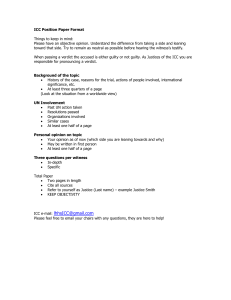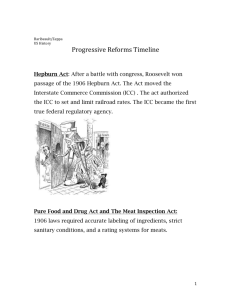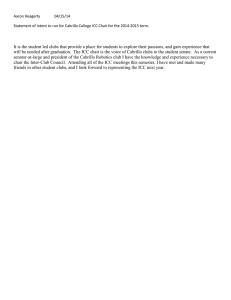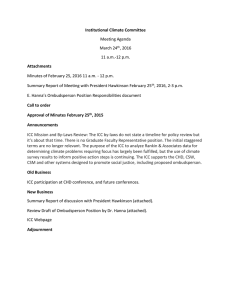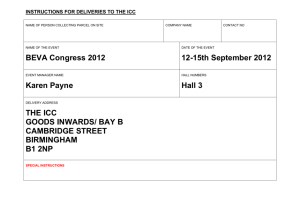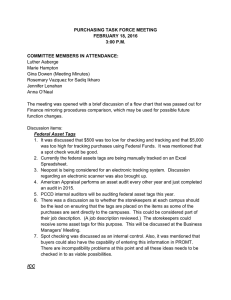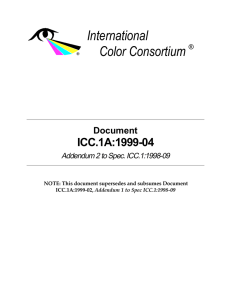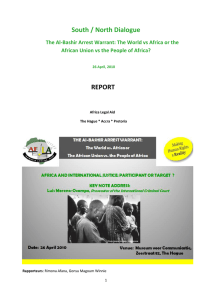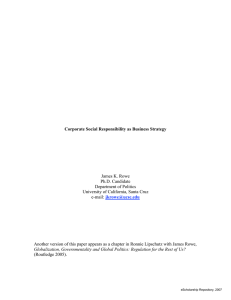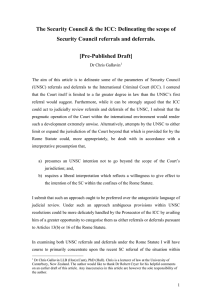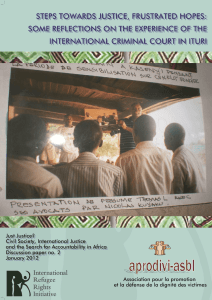Organization Influencing Global Trade Note 5.4
advertisement
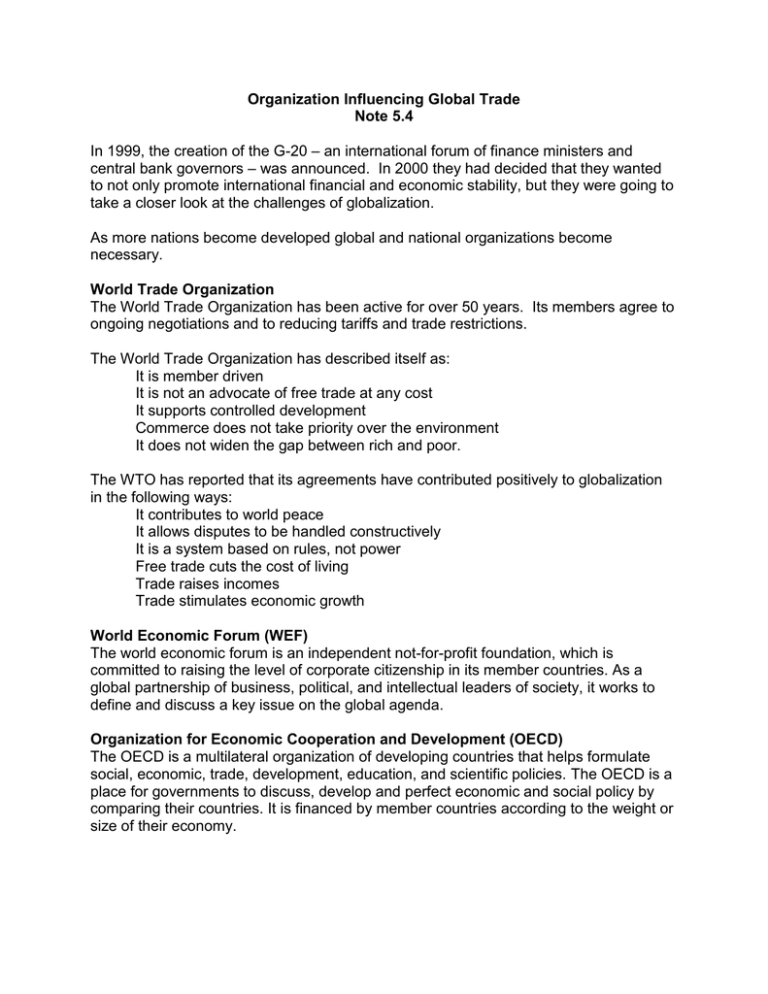
Organization Influencing Global Trade Note 5.4 In 1999, the creation of the G-20 – an international forum of finance ministers and central bank governors – was announced. In 2000 they had decided that they wanted to not only promote international financial and economic stability, but they were going to take a closer look at the challenges of globalization. As more nations become developed global and national organizations become necessary. World Trade Organization The World Trade Organization has been active for over 50 years. Its members agree to ongoing negotiations and to reducing tariffs and trade restrictions. The World Trade Organization has described itself as: It is member driven It is not an advocate of free trade at any cost It supports controlled development Commerce does not take priority over the environment It does not widen the gap between rich and poor. The WTO has reported that its agreements have contributed positively to globalization in the following ways: It contributes to world peace It allows disputes to be handled constructively It is a system based on rules, not power Free trade cuts the cost of living Trade raises incomes Trade stimulates economic growth World Economic Forum (WEF) The world economic forum is an independent not-for-profit foundation, which is committed to raising the level of corporate citizenship in its member countries. As a global partnership of business, political, and intellectual leaders of society, it works to define and discuss a key issue on the global agenda. Organization for Economic Cooperation and Development (OECD) The OECD is a multilateral organization of developing countries that helps formulate social, economic, trade, development, education, and scientific policies. The OECD is a place for governments to discuss, develop and perfect economic and social policy by comparing their countries. It is financed by member countries according to the weight or size of their economy. World Bank Group The World Bank’s slogan is “Our dream is a world free of poverty.” The World Bank uses all its resources to help developing nations onto a path of stable, sustainable growth against poverty. It supports countries with financial assistance and partnerships. The World Bank’s goals for the new millennium include reduction of poverty, improvements of health and education, and protection of the environment. International Chamber Of Commerce (ICC) The ICC was established in 1919 and has become a voice for 1000’s of member companies and associations around the world. Its policy is that trade in the market economy is a powerful force for peace and prosperity. ICC factories refer to themselves as “merchants of peace.” The business makes rules and regulations regarding conduct of business across borders. Although acceptance of these regulations is voluntary, the ICC rules are observed in thousands of free trade transactions every day. The ICC handles issues involving financial services, information technology, telecommunications, marketing ethics, the environment, transportation, competition law, and intellectual property. The ICC International Court of Arbitration recommends guidelines and rules in a wide variety of business activities. International Monetary Fund (IMF) Since 1946 it has collaborated with its member countries to foster economic growth and high levels or employment. The IMF provides temporary financial assistance to countries to help ease economic difficulties resulting from a variety of problems. Members include economies from Czech Republic, Indonesia, Poland and the former Soviet Union. National Organizations An organization that assists those engaged in international business is C.D. Howe institute. C.D. Howe - Formed in 1973 - Non profit research institution specializing in analysis of economic and social policy. - It focuses on issues such as international and interprovincial trade, the environment and monetary policy. It is attempted to reduce the uncertainty of economic policy in Canada. Another organization the Forum for International Trade Training (FITT) prepares training programs and services to educate business individuals in ways of competing successfully in international trade. This organization was founded in 1992 and its philosophy was that Canada’s economy rests on the improved performance of people in Canadian business and companies in the global marketplace.
